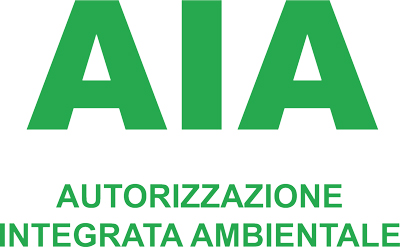Home > Sustainability
Our concept of sustainability is based on the assurance that we have done everything possible to minimize our impact on the environment.
Our targets:





Our philosophy is based on the principles of environmental sustainability, social responsibility and compliance with management systems,
In 2002, Cabro achieved a UNI EN ISO 9001 Quality Management certificate.
We believe that the only way a company can succeed is by creating value for everyone: employees, partners, suppliers and users of its products. It is therefore directly responsible for Quality in all its aspects (employee training, processes, products, services, qualified suppliers), having customer satisfaction as its primary and main goal.
Air emissions control, water discharge monitoring, soil monitoring, as well as waste utilisation from production processes are carried out in accordance with a strict monitoring and control strategy approved by the competent authorities, in compliance with the Best Available Techniques defined by the European Union.
Cabro is certified by the RJC (Responsible Jewellery Council) – a global organization that defines sustainability standards for the jewellery and precious metal industry.
Cabro is committed to conducting its activities in accordance with the RJC Code of Practice (COP), integrating its ethical, social and environmental principles into its day-to-day operations and engaging everyone around the company, from employees to business partners. To reinforce our commitment to social responsibility and to ensure that these principles are reflected in our internal regulations, we have developed and adopted the Social responsibility policy.
Cabro complies with European regulations on the Registration and the Usage Restrictions of certain dangerous chemical substances.
All Cabro products are lead free, cadmium free as well as free of other dangerous substances, according to current European regulations on the protection of the environment and the health of operators involved in the production and use of these products.
All Cabro products are entirely manufactured from inorganic or synthetic materials and do not contain any raw materials or substances of animal origin or based on genetically modified organisms.
Furthermore, these products are not derived from materials at specific risk of Transmissible Spongiform Encephalopathies (TSE), as defined in the European Commission Decision 97/534/EC.
In 2017 in accordance with Legislative Decree No 231/2001, Cabro has adopted Model Organization and Management 231.
The purpose of this choice is to implement a coherent organizational system, enshrined in codes, procedures and controls that protect the company from committing one of the crimes specified in the law.
The implementation of the Model is a powerful tool to raise the awareness of all entities working on Cabro’s behalf so that they conduct their business in an ethical and responsible manner and that they meet the requirements of the various provisions of the law.
The Supervisory Body (SB) of Cabro guarantees the company compliance with the 231 model.
The procurement of precious metals is a fundamental element of Cabros’ activity. The company recognizes that procurement can imply ethical and social risks and it does not want to be part of an irresponsible supply chain.
Cabro has therefore decided to pursue a responsible policy of supply of precious metals involving respect for human rights and free from the risks of financing armed conflicts.
There are conflict minerals, i.e. raw materials that can, through their sale, cause and finance conflicts and wars, create violence and violate human rights.
Cabro follows due diligence procedures as regards its precious metals supply chain to ensure that the metals are purchased from LBMA/LPPM, RJC and RMI certified suppliers and Italian banks and that they are not sourced from high-risk areas. The proceeds from the sale of conflict minerals cause and finance conflicts and wars, creating violence and violating human rights.
To protect our ethical principles, Cabro follows strict procurement control procedures in accordance with international regulations.